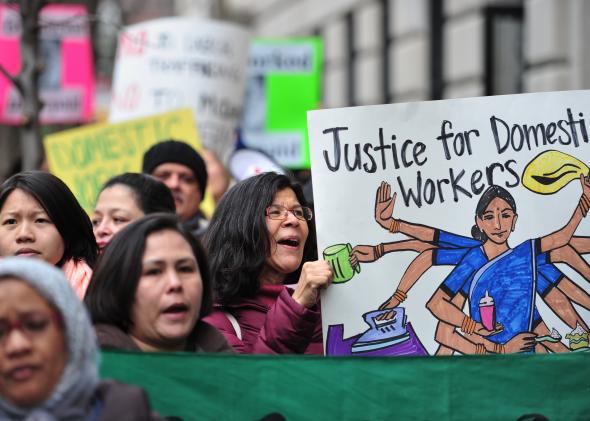Devyani Khobragade, the Indian diplomat whose arrest in New York sparked a diplomatic spat between the United States and India last month, has now apparently returned home.
Khobragade was indicted by a grand jury for visa fraud in connection with her treatment of a domestic worker, but apparently the two governments apparently worked out an arrangement under which she was retroactively given diplomatic immunity. (After the incident, she was transferred to a U.N. delegation that carried the immunity she did not enjoy as a consulate official according to the U.S. government.)
Khobragade’s arrest, which included a strip search, prompted outrage in India, including some reprisals against U.S. diplomats in New Delhi. The U.S. has asked India to waive Khobragade’s immunity, but that seems like a formality. Khobragade won’t go to jail but probably won’t be returning to New York any time soon.
The scandal will likely blow over fairly soon—though the impending Indian election could fuel it for a while longer. Hopefully this won’t come up, but it might now be a bit harder for the U.S. to make a diplomatic immunity case the next time a U.S. “consulate employee” shoots somebody in broad daylight in a foreign country.
The other big question following this incident is how to address what seems to be a serious problem with the employees of foreign diplomats in the United States.
The U.S. Government Accountability Office has documented more than 40 cases of abuse of domestic workers by diplomats in the United States, and the number of unreported cases is likely much higher.
As former State Department official Tony Edson writes for Bloomberg, these workers are usually “on temporary visits, which have fewer conditions” and are harder to track. While employers are theoretically required to abide by U.S. laws on wages and working hours, but as Edson asks, “If the employer really intended to respect normal U.S. wage and working conditions, wouldn’t they be more likely to hire locally rather than importing domestic help?”
The most obvious solution would be to simply stop allowing diplomats to obtain temporary visas for domestic workers and require them to hire American staff. But given how many items are currently on the immigration reform docket in the United States, this seems pretty unlikely to occur.
While the diplomatic fallout from this case was unfortunate and the arrest certainly could have been handled better, from the point of view of enforcing U.S. labor laws the publicity around the case hopefully sent a message to other diplomats bringing help from home.
